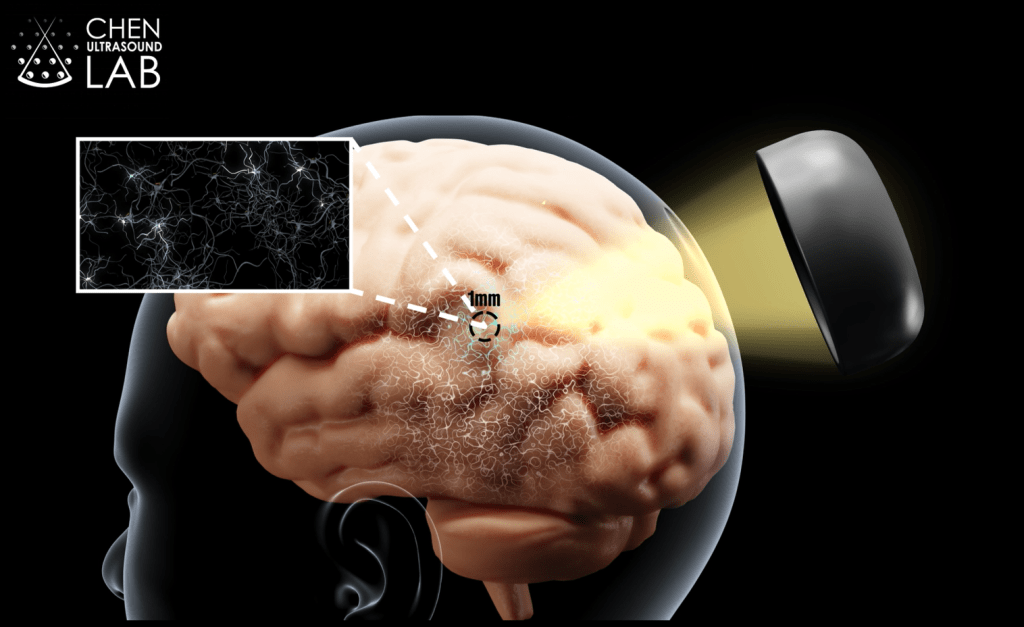Researchers have developed methods to study and manipulate areas of the brain, though many of those methods are restricted by the limited depth that light can reach within the brain. A multidisciplinary team at Washington University in St. Louis plans to overcome that limitation by integrating ultrasound with genetics to precisely modify neurons in the brain.
Hong Chen, PhD, an associate professor of biomedical engineering at the McKelvey School of Engineering and of neurosurgery at the School of Medicine, will lead the team in the research with a five-year $3 million grant from the National Institutes of Health (NIH)’s National Institute of Neurological Disorders and Stroke. The new method, Sonogenetics 2.0, has the potential to combine the advantage of ultrasound and genetic engineering to modulate defined neurons noninvasively and precisely in the brains of humans and animals.

Chen’s team was the first to show that sonogenetics could modulate the behavior of freely moving mice. However, researchers still face some limitations, including a lack of molecular probes with high ultrasound sensitivity, the need to surgically inject viral vectors to express the probes and a low spatial resolution when delivering ultrasound to the mouse brain.
“Sonogenetics 2.0 would address these bottlenecks and achieve cell-type-specific, spatially precise neuromodulation in the whole brain of freely behaving animals without intracranial surgery,” Chen said.
Chen and the team — which includes Jianmin Cui, PhD, a professor of biomedical engineering at the McKelvey School of Engineering, along with Alexxai Kravitz, PhD, an associate professor of psychiatry, and Meaghan Creed, PhD, an associate professor of anesthesiology, both at the School of Medicine — plan to optimize the ultrasound sensitivity of candidate ion channels, as well as evaluate the potential of using focused ultrasound-mediated intranasal drug delivery (FUSIN) to safely deliver viral vectors to different locations in the brain. In addition, they plan to develop wearable ultrasound transducers with better spatial resolution using 3D-printed Airy beam lenses to deliver the ultrasound energy to the mouse brain with high spatial resolution. Finally, they will validate their results in Kravitz’s and Creed’s labs.
“This method would provide a transformative tool to the neuroscience community to investigate cell-type-specific processes in intact mouse brains with high spatial precision,” Chen said. “This proposed technology is ambitious, but it has the potential to translate to large animals and humans and ultimately develop circuit-based treatments for brain disorders.”
Separately, Chen also received a four-year $2.35 million grant from the NIH to continue work on the FUSIN technique with the goal of translating this technique to the clinic for the treatment of brain tumors. She and her team — which includes Joshua Rubin, MD, PhD, a professor of pediatrics and of neuroscience; Milan Chheda, MD, an associate professor of medicine; Buck Rogers, PhD, a professor of radiation oncology; and Richard Laforest, PhD, a professor of radiology in the Mallinckrodt Institute of Radiology, all at the School of Medicine — plan to optimize the technique in small and large animal models.
